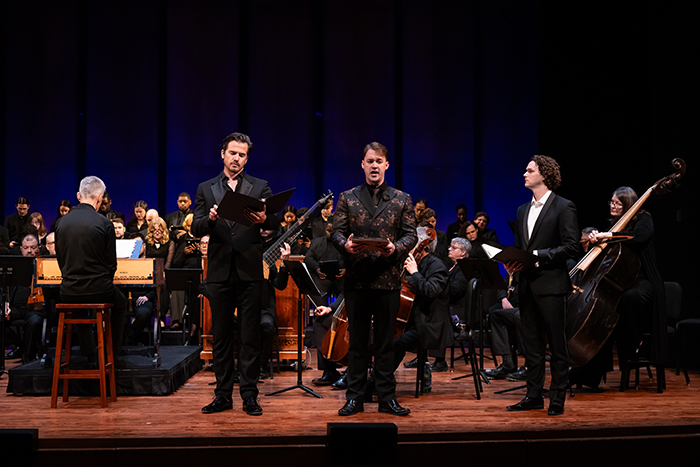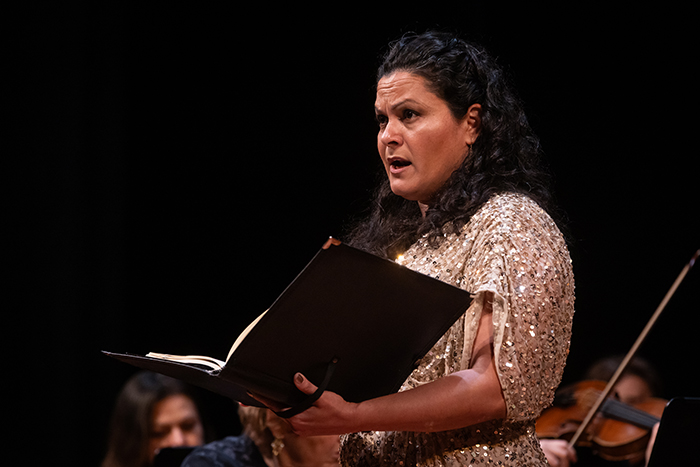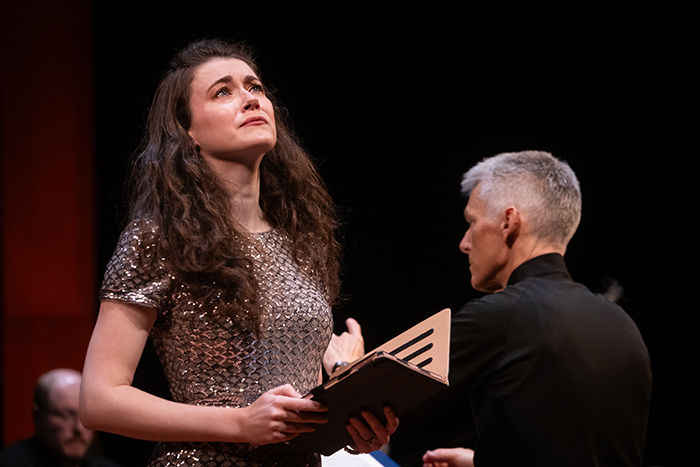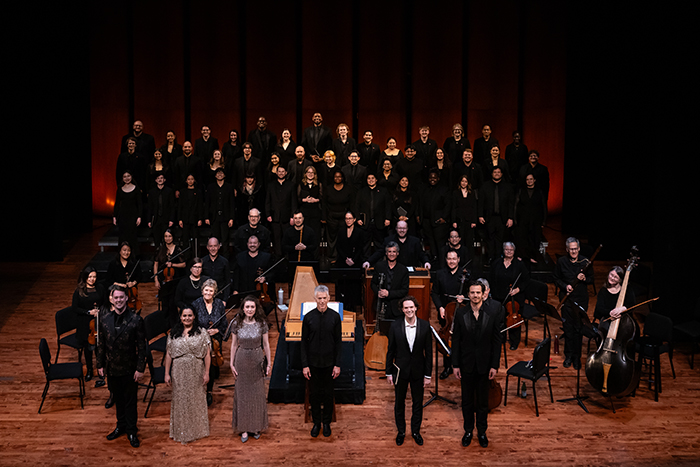Handel’s Theodora was the least-performed oratorio during the composer’s lifetime, yet he considered it one of his most important and finest creations. The story of the martyrdom of 4th-century Christians Theodora and Didymus under the reign of Roman emperor Diocletian may not have been a popular subject for the 1750s London audience, but its timeless theme of faith and devotion in the face of oppression and injustice speaks powerfully to the here and now.
This weekend at Zilkha Hall, Ars Lyrica Houston delivered a deeply moving performance of Theodora, one that illuminated both the intense drama and contemplative lyricism in Handel’s brilliant score and his collaborator Thomas Morell’s inspired libretto. In this tightly constructed three-act oratorio, all five singers on stage took to his or her role with conviction, giving emotional heft to each character. The 45-singers strong chorus (University of Houston Moores School Concert Chorale) provided a mighty sonic boon to the unfolding drama, alternating between the exuberant hedonism of the Roman heathens and the reflective solemnity of the Christian community.
Bass-baritone Douglas Williams projected authority and swagger as Valens, the cruel Governor of Antioch who condemned the heroes to their fate. Ironically Handel gave one of the only upbeat arias in the oratorio to his villain, and Williams gave a sonorous and buoyant rendition of “Racks, gibbets, sword, and fire,” singing gleefully about methods of punishments for the unbending Christians.
Countertenor Cody Bowers was captivating as Didymus. With impeccable intonation and a pure clear voice, Bowers exemplified the steadfast devotion and courage of his character. The ethereal long tones in the aria “Kind heaven, if virtue be thy care” seem to come from heaven itself. And Bower’s light and airy tone was superbly suited to the second act aria “Sweet rose and lily.”
Soprano Nola Richardson and mezzo-soprano Cecilia Duarte portrayed the title character Theodora and her faithful friend Irene to perfection. In glittering silver gowns, they matched each other in nobility, finesse, and emotional intensity. Every aria resonated with meaning, with phrases that soared and pacing that was both measured and allowed the music to flow naturally and effortlessly. Even the recitatives were imbued with pathos.
Richardson’s bright silvery tone sailed through the air like the skimming silver doves of her aria “O that I on wings could rise.” In her three duets, Richardson was always attuned to her partner, creating a rich palette of vocal colors through even the most difficult leaps in register. Richardson and Bowers delivered one of the most heart-rending duets as they faced their executions, finding divine bliss in their sacrifice in “Streams of pleasure ever flowing.”

1 ⁄4
Cody Bowers and Brian Giebler made their Ars Lyrica Houston debut alongside Douglas Williams. Photo by Lynn Lane.

2⁄4
Cecilia Duarte as Irene in the Ars Lyrica production of Handel's Theodora. Photo by Lynn Lane.

3 ⁄4
Nola Richardson as Theodora in the Ars Lyrica production of Handel's Theodora. Photo by Lynn Lane.

4 ⁄4
The cast of the Ars Lyrica production of Handel's Theodora with The Moores School Concert Chorale and ensemble. Photo by Lynn Lane.
The Ars Lyrica orchestra, conducted by Artistic Director Matthew Dirst from the harpsichord, was key to the success of the performance. The ensemble provided the pulsing energy that kept the dramatic action flowing and set the tone for the most poignant arias. Concertmaster Elizabeth Blumenstock led the ensemble with her characteristic expertise and panache. The ensemble was tight throughout. The continuo section, in particular Michael Leopold on theorbo, provided many lovely moments that gave a unique coloring to the orchestration and added to the expressive quality of important recitatives.
—SHERRY CHENG




